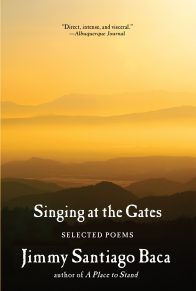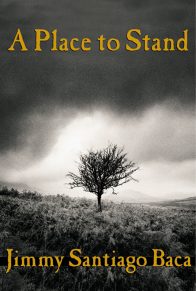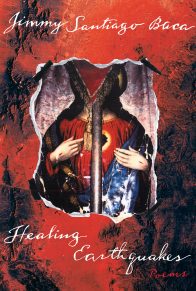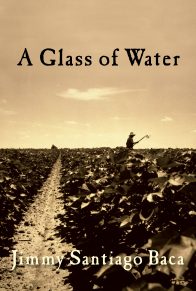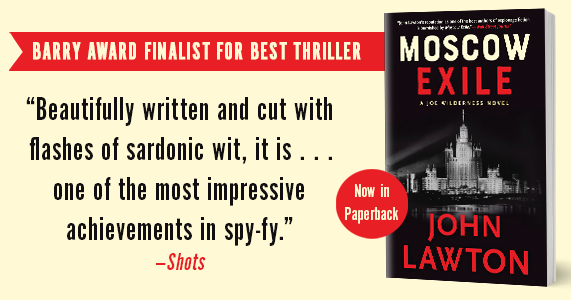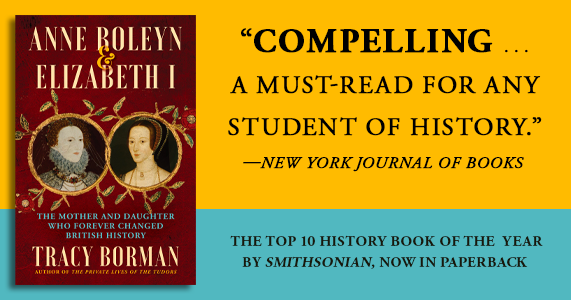The day after they were married, Guadalupe drove Matilda in his old, flatbed farm truck, rattling down the long potholed and gullied dirt road, and parked in a field his family used for grazing livestock. He described the house he was going to build for her. It would be of adobe, with hardwood floors; the living room windows would face east with a view of the Sangre de Cristo Mountains; the kitchen would look out on the sheep sheds, hay barn, and tractor shed; the pantry and enclosed back porch would be divided by an archway separating them from the kitchen.
When they got out of the truck, he continued to gesture where the solid-core cedar back door would be, how it would open to the west and north fields, and how the three bedrooms would look out on the mesa to the south. The entire house would be heated by two wood stoves.
To the east, he would dig a ditch from the acequia madre, or “mother ditch,” which had water in it year-round, run it through the property, and build a small pond and bridges where the ditch meandered through the yard into the orchard and pastures.
As he talked, Matilda became thoughtful as she gazed over the grassy meadows. He was afraid she might be having reservations. She was wearing blue canvas slip-ons, a light green skirt with green nopal cactus patterns, and a white blouse trimmed with red thread. She walked around nimble as a pronghorn deer, turning one way, looking at him, her eyelids squinted, the morning sun reflecting off her raven hair, blazing it to an even darker black. She knelt to sift earth through her palms.
“Is there something bothering you?” he asked, perplexed by her sudden distance and worried she might not like his plans.
She didn’t answer.
He watched her, awed by the familiar sensation that she seemed more an extension of nature’s trees, grasses, and wild flowers than the offspring of humble parents. He recalled the first time he had seen her, how bored he had been in church that morning, gazing out the windows east to the Sangre de Cristo Mountains. She was singing in the choir for Easter morning services, wearing a knee-length white skirt and yellow ribbons tied to the tips of her long black braids. Light diffused from the stained glass window above the choir loft and bathed her in luminescence. When she sang, the doves fluttered on the window ledge and sunlight turned red and gold and blue as it passed through the glass panels, transforming Matilda into an angel in her descent from heaven, sent to earth to specially bless his heart that morning.
When he had kissed her the first time after their fourth date, he could taste the fragrance of sage and its indescribable spicy resin on her lips. And when she had caressed his face one evening lying down under an elm tree by the river, her fingers smelled like wild honeysuckle vines. When they went to hear his uncle play violin for the San Pablo fiestas at the church, he danced with her and she moved the way his uncle’s violin bow careened across the strings, firm and elegant, provoking a desire in him to swing her all around.
Now he studied her walking quietly, biting her red and shapely upper lip: He followed her eyes like a crow staring intently at oval cherries on an uppermost branch. She blended in with the grass and the lush alfalfa’s blue blossoms swaying heavily with the breeze coming in from the Rio Grande river nearby.
She finally turned. “This whole place will be a garden, and you I will nurture with the utmost love and care.” She came up to him and kissed him. She reached down and picked up two small grains from an ant pile. She held one out to him pinched between her index finger and thumb. “Put this under your tongue, make a wish, and spit it out. The ants carry it to their place of dreams and it will come true.”
“I already have my dream,” he said, and looped his arm around her waist. He pointed to a huge roadrunner speeding past with a lizard in its beak. It leaped up on a fence post, tail twitching, head jerking in short jabs as it gulped the lizard down.
That was more than fifty years ago. He had been seventeen years old; she sixteen. Now the old adobe house creaked like an ancient, Mexican garden ornament, built more for flowers to inhabit than humans; the heady aroma of Matilda’s gardens swaddled him in a blanket of heavy, humid sweetness. She was right, of course; she had made the whole farm her garden and nurtured him with her love.
Flowers and vines spread even into his dreams. Their scent had smoky shapes like blue herons and hummingbirds and parrots, drifting and transforming into cranes as they broke through the dream surface from the depths of his mind and into the reality of another dawn and woke him. He could swear, as his eyes adjusted to the dark in his bedroom, that he saw white wings fluttering midair across the room and he heard Matilda’s voice coming from the field beyond the window.
He looked at the clock: 4:12 a.m. The chill had come early in late August, leaves tinged yellow, Canadian geese and sandhill cranes migrating south to the Bosque del Apache Wildlife Refuge. He turned over onto his left side, snuggled deeper under the quilt, tucked it under his chin, and pulled back the loose blanket to his left where Matilda used to sleep next to him. He stared at the stone in the place where her head would have been. It was now exactly three months since she had passed away.
He was crazy to believe she might appear because of the stone, and he knew it. Matilda had found it on one of her hikes to the mesa where she’d go for the seasonal herbs that grew there. The stone was sheared smoothly in half and fit comfortably in the palm of his hand. The cut side had a light blue horizon, a dark brown range of mountain ridges, and a white moon rising over them. For weeks now, after settling himself into bed, he had placed the stone next to him hoping his personal ritual might summon her from the spirit world to visit him briefly. Of course, he didn’t believe it would, but he was certain that these private rites would somehow let her know that he was always thinking about her, and that consoled him.
Since her death he’d been clutching the stone for hours before sleep, rubbing it with his old, calloused thumb, whispering her name until he fell asleep. He believed he could retain some residue from her sweat or skin on his fingers. It started with the stone, but soon encompassed other of her possessions. Believing that she could feel his contact, he would take her favorite head scarf, hold it to his nose, and breathe in her smell. On one occasion he spent an entire day collecting the strands left in the bristles of the brush she used to comb her long gray hair. He would pray while he held the twisted braid of her hair along his wrinkled lips, sometimes even tasting it. He had finally twined it into a knot and placed it in a small leather pouch she had given him that he wore around his neck for good luck. He lay in bed a moment longer, thinking how strange his behavior had become, and yet it pleased him because it kept him believing he was in touch with Matilda.
A few weeks before, absorbed with memories of her and desiring a deeper, visual connection, he had decided to construct an altar with her favorite saints—Our Lady of Chestahova, the dark virgin; La Virgen de Guadalupe; San Martin de Porras; and some strange god from India that Matilda loved, Hanuman Ji. He collected everything he could find that belonged to her and set it on the altar. Every morning he rose, and with somber sincerity, sliced an apple and placed the cut pieces on a dish so that her spirit might have something to eat that day. And only after communicating with Matilda through this sacred rite would he begin his day.
The alarm clock on the bed stand rang and he pushed down the button. He got up and dressed.
In the last week or so he had been thinking about her last inhalation. In his dreams she was trying to breathe again. Her breath became wild purple lilacs in his mind, their vines curling out everywhere, so real to him he was certain that one day the driveway would brim with them. Wild purple lilacs swinging in the wind, seeds blooming at the front door, tendrils shaking against the window glass, nestled in the crevices, purple petals cascading off the roof. Maybe it was her spiritual self working through these images, creating a bridge from her world to his. All he knew was that somehow she was communicating with him in the way that she loved most, through flowers.
Without her, it had been difficult for him to respond to other people. Beyond accepting condolences from friends at the cemetery, he’d had no inclination to converse. He let his daughter or one of his sons handle the conversations with people interested in sharing experiences they’d had with Matilda. He found he was comfortable living in a world without them, but not without her. He was there in body but otherwise absent, and he trained his thoughts and feelings on her so intensely that some people attributed his lack of attention to the fact that he was losing his mind.
He went into the kitchen, flicked on the light, filled the teapot with water, placed a spoon and the jar of instant coffee on the table, and sat down. He opened last Sunday’s newspaper and leafed through it while waiting for the water to boil.
He scratched his gray stubbly chin as he read the lead article, thinking he wasn’t crazy at all, not compared to the rest of the world. Sixty miles east, in a town called Roswell, Martian-seeking tourists, drawn by rumors of alien spacecraft having landed there, were streaming in by the hundreds to view the extraterrestrials. The writer quoted some of the visitors as saying they had seen spaceships land in their fields or swearing they’d encountered aliens roaming ditches at midnight, suddenly coming up on them walking home alone. As he finished reading the article, he dismissed any lingering fear that he might have had about becoming senile—thinking of his Matilda’s breath exuding from the plants was his way of coping with her absence, and he wasn’t going to bother himself over what others suspected might be happening to him in his sudden isolation and silence. He was certain the breathing he heard in places around the farm was Matilda trying to speak her presence to him.
The day before she had passed away, while sweeping and cleaning the kitchen after breakfast, Matilda had reassured him that she was going to be all right. That Monday evening she took to bed complaining about having trouble breathing. Later, he sat with her in the bedroom and read the Bible, hoping to revive her spirits. They talked and she told him she was expecting to be up in time for morning coffee. After she had fallen asleep, he lingered at the window with his back to Matilda fast asleep in bed behind him.
Her wrenching gasp interrupted his thoughts and made him turn in fear. She panted forcefully, choking for breath. She sat upright, bulging eyes startled by a seemingly frightening specter hovering above the bed. Her chest rose, neck swelled, teeth clamped in a defiant fight to breathe. He looked around the room, wanting to challenge whatever sight had wrung the life from his sweet Matilda, desperate to strangle it with his age-mottled hands.
She fell back on the bed, staring up at the plaster ceiling as if some spirit had violently dragged out her breath through her opened mouth, her eyes open wide in frozen terror at its strength and size.
He had cradled her in his arms, repeating not to worry, he was there, his chin against her matted hair, hollow, gaunt shadows on her fevered face, purple rings around her eye sockets, his hands rubbing her clammy neck, her sweat-drenched nightgown clinging to her bony shoulders. She groaned for all the air in the room, in the house, in the universe. And then, after a time, she sighed her longest, softest exhalation, her breath blowing the curtains and seeming to turn the windmills patterned on them; the alfalfa outside sucked in her breath, the cultivated field soil, the wild green forest by the river, the tractor paths between the chili rows, the rutted road sloping upward toward town from the river bottom, all seemed to inhale her last breath.
“Oh well,” he heard himself say, and sipped the last of his coffee. He pulled on a light faded cotton jacket over his denim overalls, patted his straw sombrero onto his balding gray-haired head, and before going out he wiped down the kitchen counters, hung the dishrag over the sink faucet, and turned off the light. He took her prize-winning rose from the bell jar inside the china cabinet and put it in his jacket pocket.
Outside, in the tractor shed, he pulled the choke and coaxed the gas pedal until, on the third crank, it sputtered and coughed into a low unsteady idle. He backed out slowly across the front yard, went alongside the sheep pens and around the barn, behind the house and along the orchards to the fields to the west. His headlights swept across the wall of cottonwood trees and, underneath them, the evergreen bushes Matilda had planted, and briefly lighted his handiwork—warped planks set on sawhorses lined with mason jars full of screws and washers, spools of baling wire, ancient tools, and rusting machinery parts.
The sheep bleated in the sheds. He drove past the mesquite corral where his three old nag horses whinnied and rubbed their sides on the stick fence. They’d all be fed already if Matilda were still with him.
He imagined her having coffee and toast, stripping a few ears of corn to check if they were ready for picking, tinkering with the tractor’s carb, scraping off hardened dirt from the disc blades, snipping ripe tomatoes and chili peppers from the garden, slapping off dew from freshly picked garden vegetables against the sink sides. Matilda had his same wonder and love for farm life, and he couldn’t express in words the immense satisfaction that welled up in him when he was in the field with her, shovels in their hands, soil under their sneakers, sweat pouring down their brows and backs.
His shepherd, Buster, came bounding out of the apple orchard to his right. He remembered how the dog had chased the truck to the chapel, dashing with tongue lolling the whole way. It was the farthest Buster had ever followed him, and while the priest gave his eulogy, Buster stood outside barking and scratching at the door. Everyone heard the dog but ignored him. Guadalupe was mortified, and in any other situation he would have given Buster a few good smacks, but he knew the dog was suffering some kind of trauma. Buster was up on the seat next to him now.
He turned the tractor onto a dry path between the rows and headed west of the house, to the open fields. He passed her vegetable garden.
The burly guttering of the tractor put him into a trance and he barely noticed Buster jump down. He let his mind ease into the exhaust stack’s smoky incantation. It hypnotized him, droning in his bones and churning up more memories of Matilda when she had planted the windscreen of bamboo along the southern border of the fields. After that, she laced honeysuckle vines into the chicken wire, and it weaved over completely until you couldn’t see the wire, leaving only a boundary bursting with aromatic flowers. The horses lounged next to it, tails swatting at the honeybees and ears perked alertly on the dazzling hummingbirds flitting in the blossoms. The headlights shone on water gushing through a break in a furrow at the end of the field. He reached back to feel for the shovel behind the seat.
The light crept up on the mountain crest to the east. Everything was waking up. It was Matilda’s spirit in the plants. Sometimes before sunrise Matilda would sit in the semidarkness on the back porch steps and her eyes would glow with a brilliant sheen when she saw the mallards, red-tailed hawks, and crows gliding in at daybreak and congregating in the fields. It gave her a joy few other sights scarcely came close to—after meditating like that, she’d enter the kitchen, cheeks flushed and chilled, her eyes brighter than the morning sun, humming an old country song clear as a cathedral bell, ringing throughout the rooms with the immense pleasure of being alive.
He intended to patch the break, then close the sluice gate and irrigate the next field. There was still enough moonlight to see by so he turned off the tractor lights, put the gear in neutral, climbed down, took the shovel from the rope sling, and started rebuilding the dirt clods along the furrow, packing it solid.
From the channel brush came the sound of startled birds flapping frantically. It was Buster again, coming in from roaming the riverbank. He had crept up on mallards serenely floating in the ditch and barked as they scattered airborne. Sometimes he’d come back soaking wet and dirty with stickers and weeds in his coat, black nose scratched and bleeding from squirrels and wild cats, breathing hard, clutching an old muddy boot, a dead river rat, or bird in his mouth. In eleven years hardly a day had passed when Buster wasn’t up on the seat beside Guadalupe as he ploughed and furrowed the fields. Clearing the dark treetops at the river, the geese wavered up toward the white moon. Seconds later, Buster came sprinting his way in a headlong rush from the Bosque.
Guadalupe heard him but didn’t turn. Bent over, intently patting muddy shovel-scoops against the furrow side, he was caught off guard when Buster jumped on him, and he stumbled, losing his eyeglasses in the mucky water and dropping the shovel when he tried to regain his footing. He took a step forward, then back, and groped around for them in the water, his old, calloused hands turning up mud and pebbles but no glasses.
Meanwhile, Buster scrambled up on the tractor seat, wagging his tail and turning around excitedly. He barked at Guadalupe, lunging forward and bumping the gear stick, engaging it in low gear. The tractor moved, big back tires rotating slowly in the mud, catching little traction, sinking but catching now and then, and then inching forward. Guadalupe looked up and saw only a dark blur closing in on him. He tried to step out of its way, but he fell in the water and cut the bridge of his nose on the shovel blade. He toddled to his feet, lifted his right leg, and planted it momentarily on the slick muddy furrow side but slipped again.
The tractor tires churned slowly in the ooze, the motor humming hot, iron joints grunting, couplings grinding, bolts and washers straining as it inched forward in the mire, the droning groan of the engine laboring, the tires digging in deeper. The exertion of the vibrating tires loosened the furrow sidings, and water broke free, flooding around Guadalupe as he struggled to stand in the mud. The tractor suddenly caught hold of a rock and jumped forward. Guadalupe groped at the air hoping to grab some piece of the tractor and climb back on and turn it off. Then it leaped forward again and scooped him into its front-end bucket, which had tilted at an upward angle when Buster bumped the lever, lifting Guadalupe off his feet and carrying him now as if he were a branch. The tractor lurched then paused, moving until it went over the field boundary and crossed the road. Guadalupe struggled to escape—his body was half out of the bucket and he was ready to push himself off onto the ground when it butted him up against a tree.
There the tractor stayed, burying its tires in the soil, cleats chewing at the soft dirt, the sounds of loosening metal joints like a pig’s snout snorting fiercely, biting and grunting at the earth with implacable hunger, slowly grinding deep wheel ruts into the dirt up to the axle, everything a blur to Guadalupe except his own imminent end. With the bucket’s blade crushing his ribs, he knew he was going to die pinned against a tree, gazing straight ahead but unable to make out anything distinct except a gray light over the fields. He closed his eyes. Mixed in with the numbing of his body and his bewilderment was the fragrance of purple flowers, the smell of the manure and horses, and the panic that he still needed to talk to his children.
The idling tractor became inaudible. He felt heat flush over him, followed by a lightheaded euphoria. From the thick brush and trees of the Bosque, floating across the fields, came an old Mexican ballad, his favorite to dance to as a teenager with Matilda. He just had enough energy to open his eyelids to slits, but he could just make out the silhouette of a woman floating on the water. For a moment he thought it was La Virgen de Guadalupe, his namesake saint. She came across the fields and he desperately wished he had found his eyeglasses as she neared him. He was filled with the greatest delight, certain it was Matilda. Then he realized that he was her favorite flower, the one she had nurtured for over fifty years. He was the special flower in Matilda’s garden, her cherished fragrant prairie bloom, which she came forward now to take and carry away in her hand.





